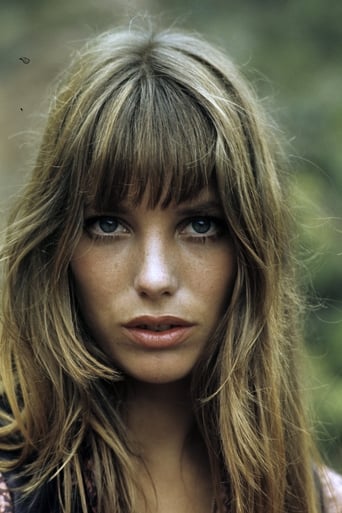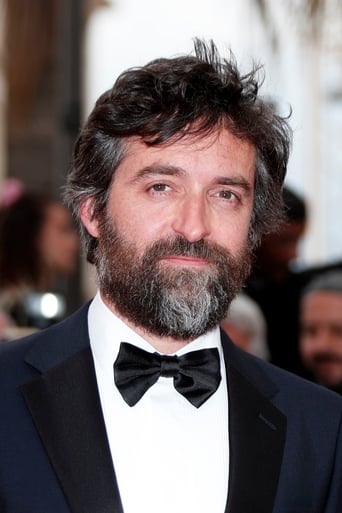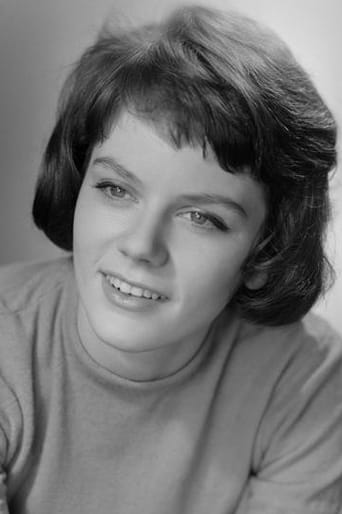Michael Neumann
There's a good reason why the English language title for Agnes Varda's new film was borrowed from a video arcade game. Beyond the obvious metaphor of the game itself it spells out very clearly the lack of pretension in Varda's story of a forty-year old housewife who falls in love with a fourteen-year old schoolboy. On its surface the film is about an older woman recapturing the passions of youth, and a young boy's awkward reaching out toward maturity. But underneath is a thoughtful look at the erosion of old-fashioned romantic ideals in an age of safe sex and AIDS awareness, a fact Varda gracefully acknowledges in the final, chilling scene, which (in a subtle way) shows the darkest side of adolescent peer pressure. It's a quiet, undemonstrative drama; Varda has a poet's sense of how much to say and how much to leave unsaid, and the few remaining words she leaves in the capable hands of a first-rate cast. In a daring casting decision the director's own son handles the role of the teen lover, and with surprising skill for a kid his age.
Gi C
a teenager boy, a middle-aged woman. the love between these two? what kind of ending you will give it? it is a delicate movie in the sense of emotion description. From the camera, the director makes us feel that there is a man inside that little boy, who loves the "kung fu master" video game very much. His eyes talk like a man, his hands move like a man, he acts like a man in front of that woman. It is possible to forget about the big age difference between these two. At this point, I think the director did a good job. what kind of ending you will give to a love story, not necessarily this one, certainly can talk about how you see the world and the love and relations between human beings. I can't help thinking about my own ending in the whole process of watching the film. To me, the most important part is not the ending the director shows, it is the ending in my own heart. What is love's perfect ending? Does "living together from then on" really answers for all?
debblyst
The idea for "Kung-Fu Master" was proposed by Jane Birkin in Agnès Varda's tribute documentary to her, "Jane B. par Agnès V." (1987). Birkin suggests a film in which a 40-year old woman would fall hopelessly in love with a teenage boy, suggesting herself and Varda's and Jacques Demy's son, Mathieu, for the leading roles. That very same year, the idea would develop into the rapturing, bewitching, winning "Kung-Fu Master", a film unlike any other ever made. Mary-Jane (Birkin), 40, divorced, independent, living with her two daughters (her real-life daughters, 16-year-old Charlotte Gainsbourg and 5 year-old Lou Doillon), suddenly finds herself terribly attracted to one of her daughter's schoolmates, 14-year-old Julien (Mathieu Demy), and vice-versa. From then on, Mary-Jane and Mathieu find the unlikeliest ways to meet (including Mary-Jane bumping her car on Julien on purpose!) as they face love's highs and lows, trying to make it thrive against society's ponderous prejudices and Julien's own inevitable "growing up".The film is a hoot from start to finish. The title is a reference to the Arcade video game, where a Kung-Fu Master must endlessly fight increasingly dangerous obstacles and enemies (as must Julien and Mary-Jane) to save his captive sweetheart, who is kept tied up, perennially crying for help. The opening sequence of the film, in which Mathieu Demy in full Kung-Fu costume skilfully simulates the robotic choreography of the video game hero is delightfully funny and wins you at once. The dialog sparkles with jeux-de-mots and a mix of English and French sense of humor. Jane Birkin was probably never more beautiful or appealing than here, her angular, bony beauty serving her emotional transparency and complete commitment to her role. Mathieu Demy, inexperienced, is nevertheless charming, well-cast and never phony in his difficult role. Varda's direction of her own son is amazing: it looks as if she's discovering his acting potentialities and the first signs of manhood along with Mary-Jane and ourselves. The cast includes Birkin's family (parents, siblings, nephews, daughters etc), who appear nonplussed with the touchy issue and ultimately even help the odd couple. Charlotte Gainsbourg shines with her urchin face, special talent and sensibility; she's a natural. Baby Lou Doillon is lovely throughout, adding to the feeling of spontaneity that gives the whole film a slightly magical touch, as if we were watching improvised scenes, not scripted ones. Mary-Jane's and Julien's scenes together are far from risqué, but filled with emotional rapture, originality, humor. Sex is implied, but never at the core of things; love -- romantic, throbbing, unconventional love -- is."Kung-Fu Master" is a fable about the nature and possibilities of romantic love in obtrusive circumstances, and MAYBE it hints that women, girls and boys are better suited for it than grown-up men (which is probably true!). When Mary-Jane and Julien go to a desert island so that they can fully experience their love far from society's burden, we can see why they're at once sacred (they're pure, unbiased by interest, conventions, hypocrisy) and doomed (their love can only exist fully and freely away from conventional society). The film's ultimate goal may be to translate women's infinite, inexhaustible talent for loving and teaching love, regardless of how unlikely the object of their love is, or how powerful the enemies, or how complicated the obstacles; women are the invincible, undisputed Kung-Fu Masters of love, even if/when they don't win. This is arguably Varda's and Birkin's finest hour; they have made a film that is a triumph of poetic sensibility filled with humor and intelligence; it's a tribute to feminine pride (no man could EVER make a film like this). Enchanting from start to finish, always surprising, never tacky or schmaltzy, "Kung-Fu Master" is a one-of-a-kind film just waiting to be (re)discovered -- but most likely destined to be locked away, in these hypocritical PC times of ours that furiously prevent renewed access to films as brave as this unless they're scandalous (which KFM is not). If you can find it, do see it by all means: and pay special attention to the beautiful, subtle, rich finale. Beware, though: "Kung-Fu Master" may be hazardous to your cynicism and conventionalism, and may restart your belief in l'amour fou.





